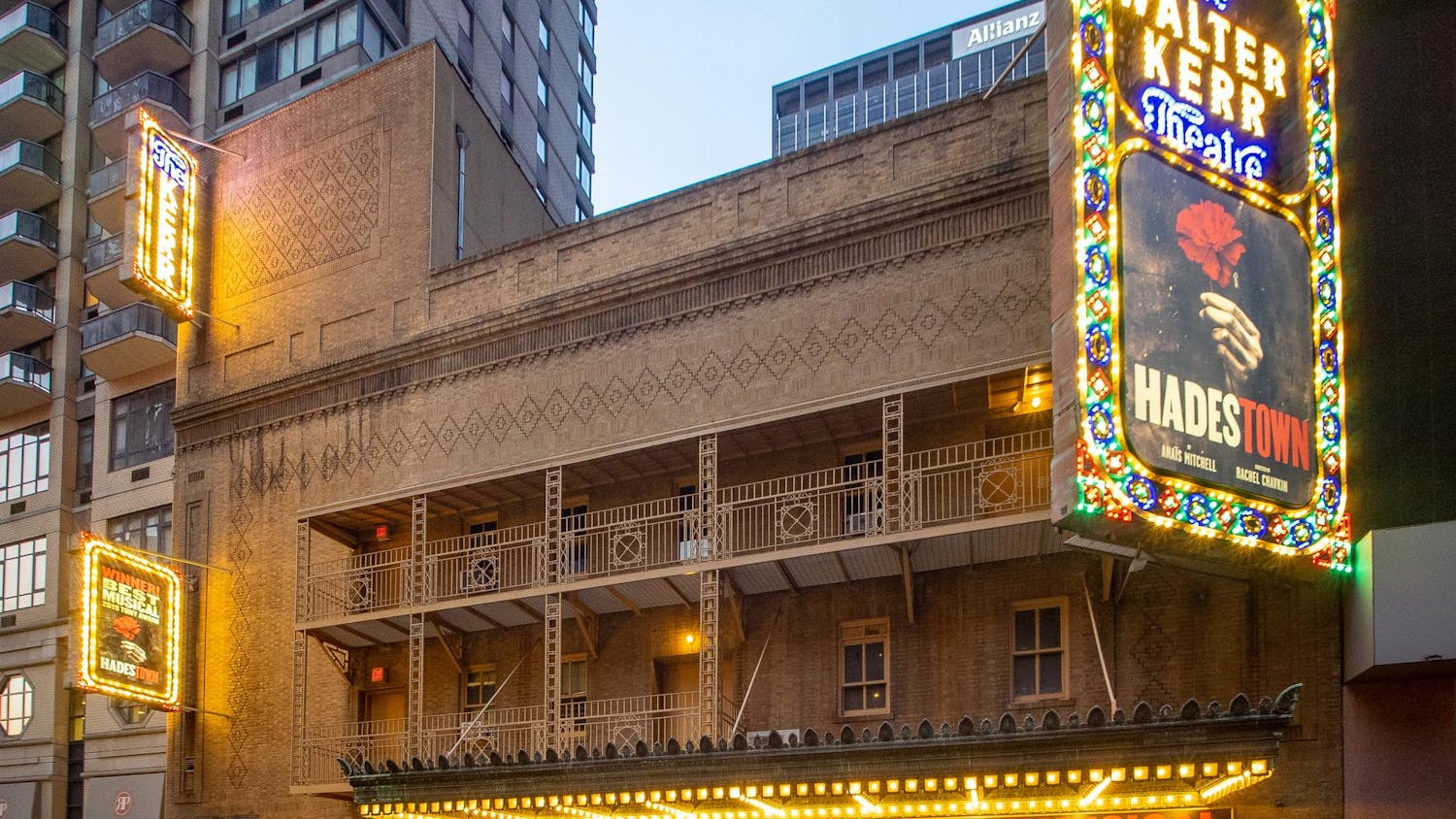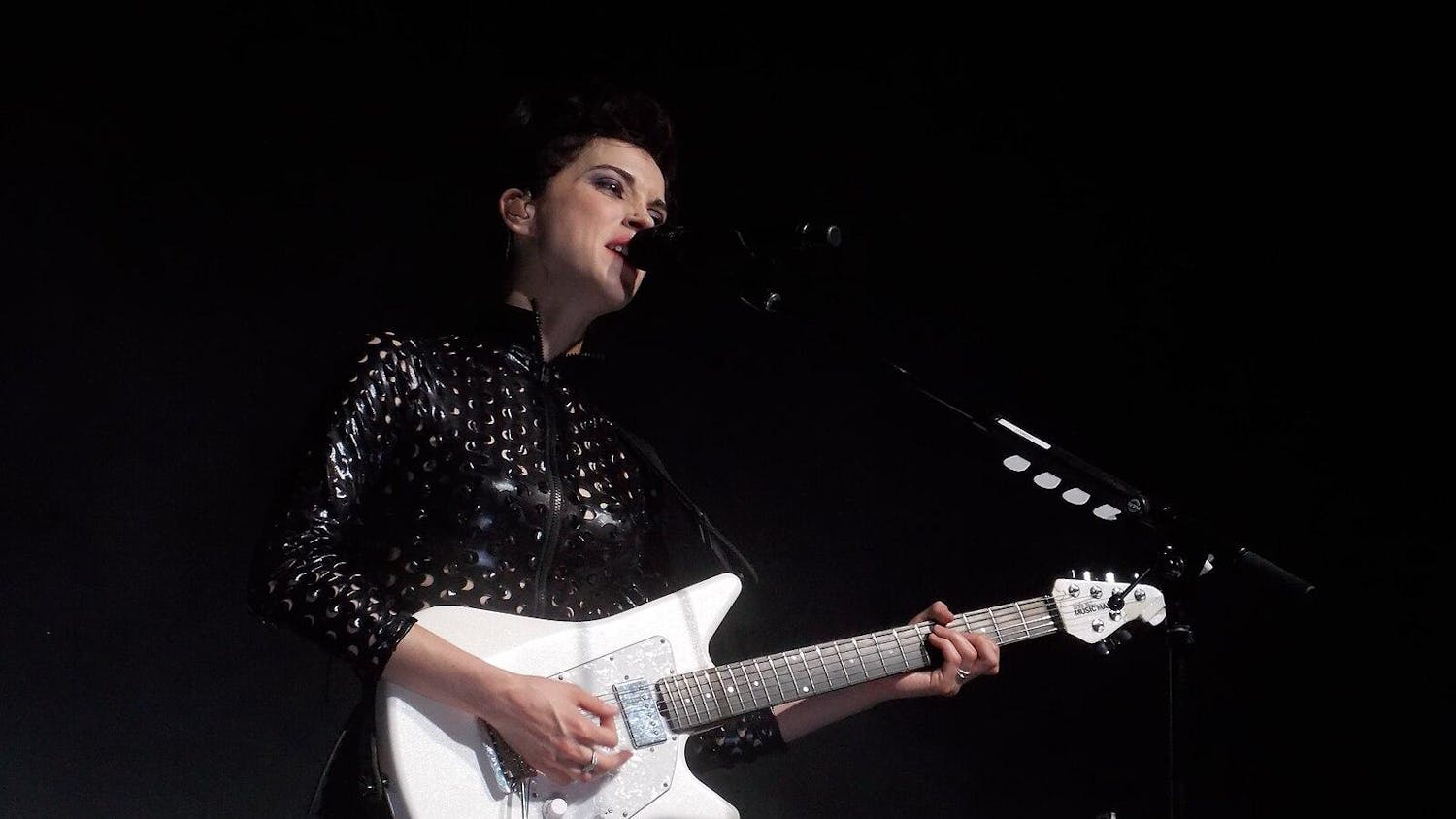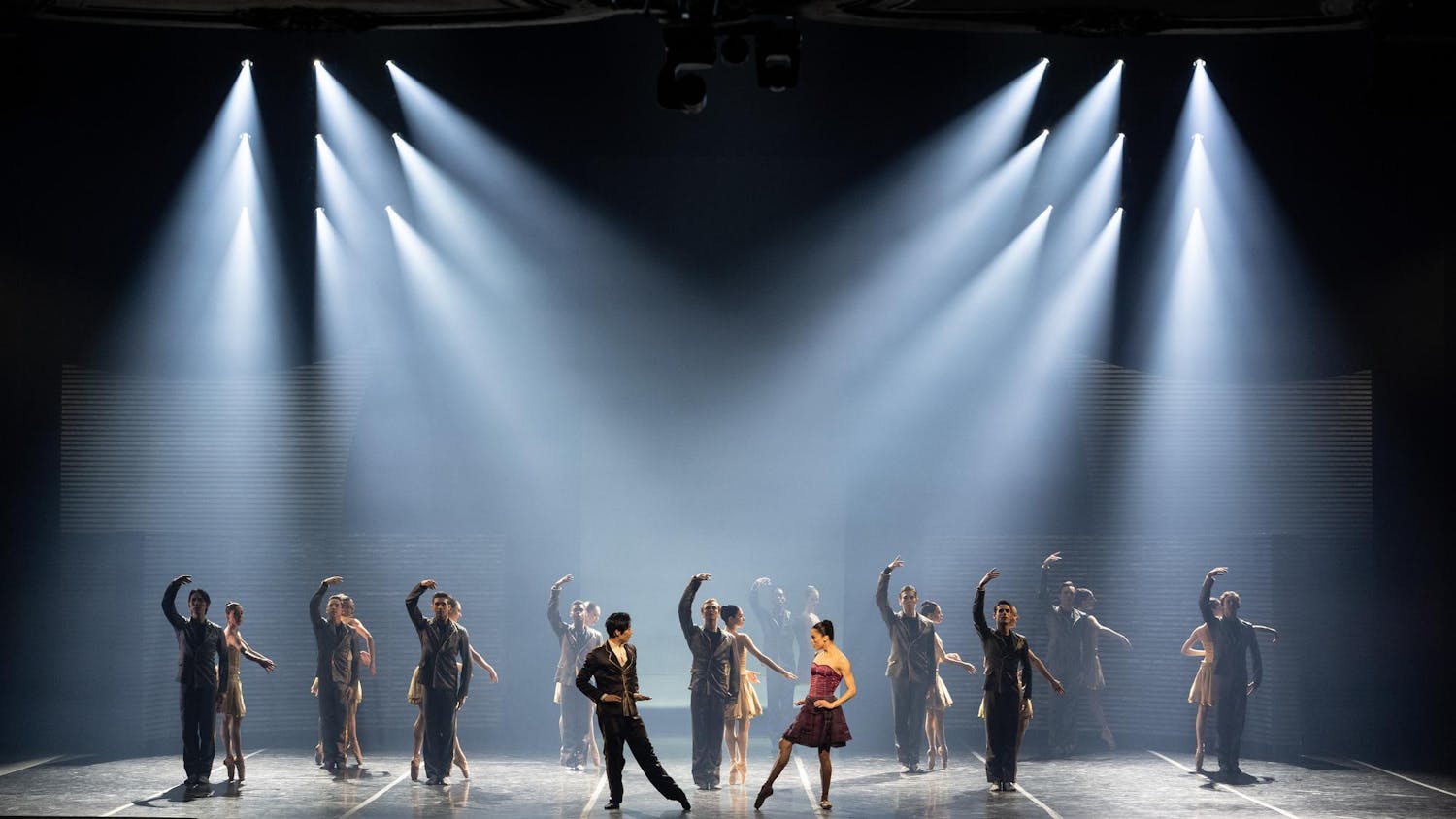Prolific composer and Tufts Professor of the Practice of Music Kareem Roustomwill have his “String Quartet No. 1, ‘Shades of Night’” (2018) performed in its Boston premiere by the Amernet String Quartet tonightin the Granoff Music Center.
Roustom’s nine-movement work follows the changes in the night sky on a journey from dusk to dawn. His initial inspiration for the piece came from Egyptian singer Umm Kulthum, active between the 1920s and 1970s, and a piece of hers that used an Arabic word that translates to “the darkest hour of the night.” Upon learning more about the specificities of the Arabic words used to describe the daily celestial metamorphosis and through reading English translations of Arabic texts by nineteenth-century translator and Arabist Edward William Lane, he was struck by the beauty and poeticness of a collection of words used to describe every hour of the day and night, around which he based his entire first string quartet.
“These words had really interesting meanings and were poetic and captivating,” Roustom said.“ I thought, ‘this is very interesting; let me start the piece at dusk and end it at dawn.’ Each of the movements is named after one of these words… It is a journey from dusk until dawn that was inspired by this very rich linguistic journey.”
Roustom described several movements in more detail. The middle movement of the work is subtitled “Al-fahma,”translating to “like coal.”“Al-fahma” is the darkest part of the night, characterized by its intense blackness and heat. As the composer, Roustom had to figure out a way to make the strings sound “like coal” while adding to the intense imagery and ethereal beauty of the work.
Roustom said that while composing, he asked himself what coal sounded like.
“I had the string players do this kind of scratchy tone,” he said, “in addition to this very fast, running passage.”
He also noted out that there are two movements to describe the dawn: the first, with the subtitle “Al-Fajr Al-Katheb,” refers to a “false dawn” where the sun appears to be rising but is drawn back before crossing the horizon, as if it is not quite the right time, and the second, subtitled “Al-Fajr Al-Saadeq,” or the “true dawn,” when the day commences.
The fundamental role of Arabic linguistics in inspiring this string quartet gives the composition a very personal connection to Roustom. A native to Syria whose first language was Arabic, Roustom has drawn recent inspiration from Islamic artistic traditions for a variety of his recent compositions, including his “String Quartet No. 1.” He noted that the Syrian Civil War has led him to focus his compositions on the country more than if Syria had not been in a state of turmoil.
“Part of that is because I am from [Syria] and I still have family there,” Roustom said, “so I felt that I needed to do something, so a lot of the pieces I’ve written have been responses to [the war].”
Many of Roustom’s recent pieces have been commissioned with the Syrian Civil War in mind and, thanks to his ability to blend the musical traditions of the Middle East and Europe and his aptness to keep the integrities of both styles in his compositions, he succeeds in honoring Middle Eastern musical tradition in a more Western setting. His “String Quartet No. 1”was originally written for the Grand Teton Music Festival in Jackson Hole, Wyo., in 2018, where Roustom was the composer-in-residence. It was premiered by members of the Festival Orchestra and has been played a handful of times since then. Roustom is looking forward to hearing the interpretation of the well-established Amernet Quartet and hopes that they find enjoyment in learning and sharing this piece with the audience.
As for the audience, Roustom’s hopes lie in their emotions arising from the performance. “I think as long as it communicates something to them and they are moved in some way by it, that is all I can hope for,” he said.
The concert will also feature Benjamin Britten’s “String Quartet No. 2” (1945) and Bernard Rands’ “String Quartet No. 2” (1994). The concert begins at 8:00 p.m.in theGranoff Music Center and is free and open to the public. No tickets are required.
Amernet Quartet to perform Roustom’s ‘String Quartet No. 1’ in its Boston premiere

Kareem Roustom, Tufts Professor of the Practice of Music, is pictured.





